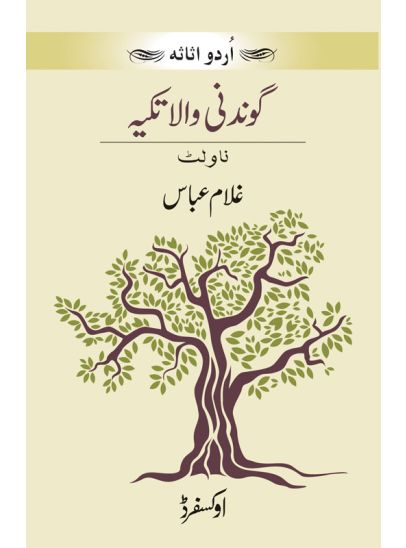Gondniwala Takiya
Gondniwala Takiya is a novel about fluctuating moral values and the evolving social milieu in rural Punjab of the early 20th century. A Takiya, or corner, was a reclusive place for hermits and Sufis, where they could retire for meditation. But the people of village too used to gather at the corner, either to meet the Sufis or to discuss matters of everyday life among themselves. Today, as a result of changing values and commercialisation, hardly any such ‘corners’ are left anymore. Hence, the ‘corner’ has a symbolic value in this novel.
The work’s depiction of rural Punjab is outstanding. It is one of the earliest Urdu novels to portray rural Punjab realistically. Sultan, the main character, returns to his village after a long time and is shocked to see that the corner that was shaded by a fig tree is no more. Sufi Nageena, who used to rule there, is gone and the people who surrounded the Sufi are nowhere to be seen. Although Sultan is happy with the clear progress that the village has made over these years, the deep sense of being an alien in his own village grips his heart.
While it was Ghulam Abbas’s short stories, such as Aanandi and Katba, which brought him fame and established him as a master of the Urdu short story, his novel Gondniwala Takiya, was also widely acclaimed.
 Weight in kg
0.01
Weight in kg
0.01
 Rights
World
Rights
World
 Year of Publication
2016
Year of Publication
2016
 Binding
Paperback
Binding
Paperback
 Pages
100 pages
Pages
100 pages




 Bulk Order
Bulk Order Request a Quote
Request a Quote